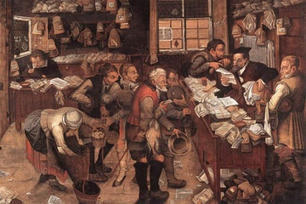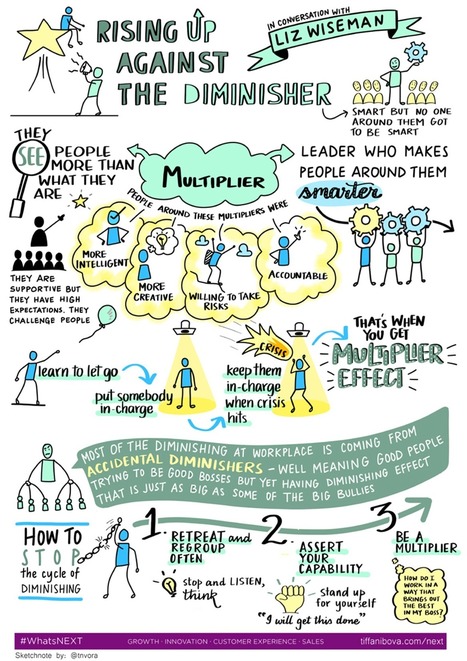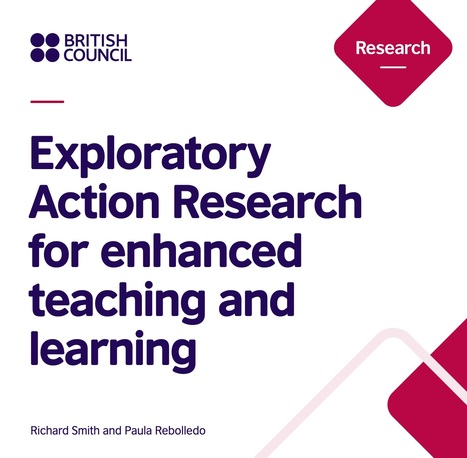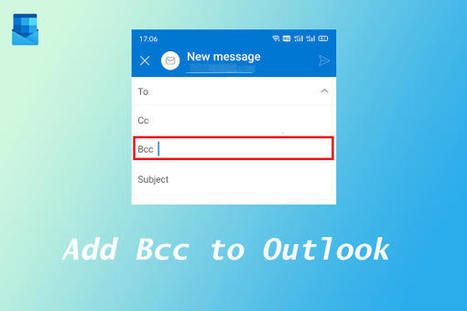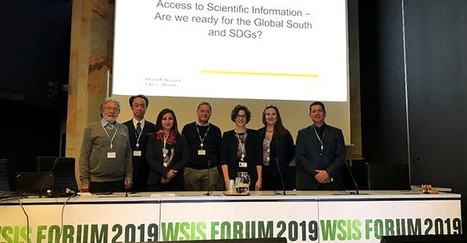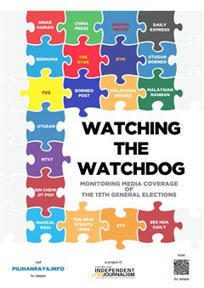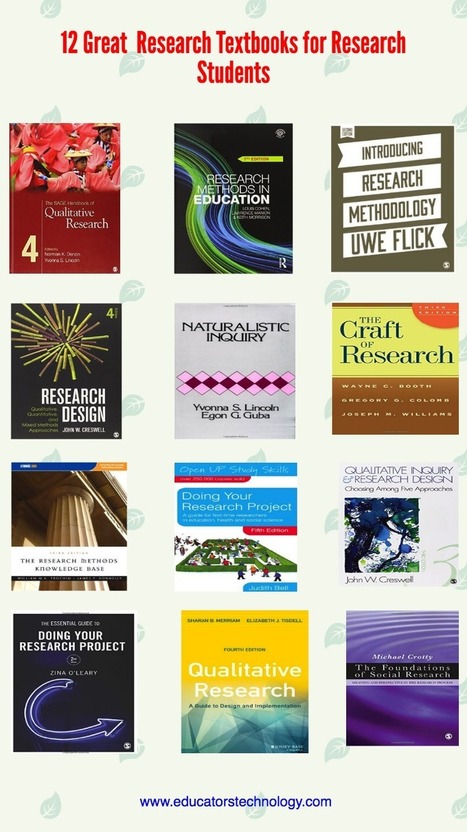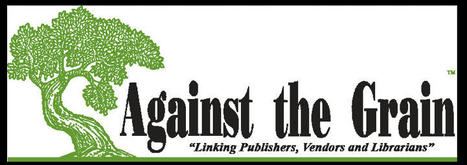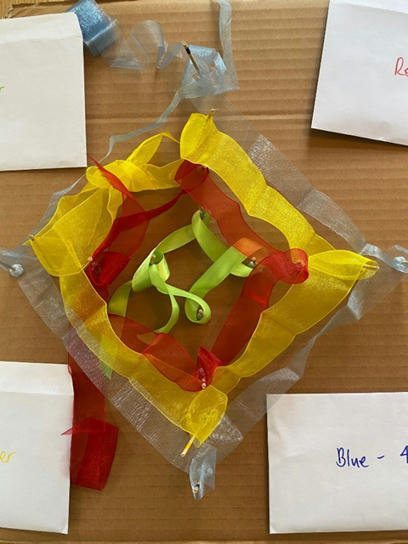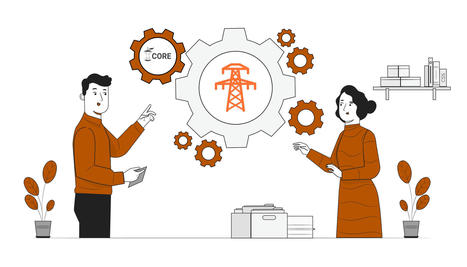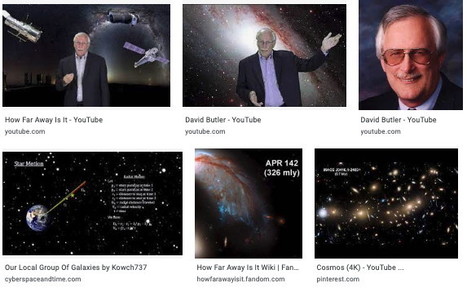
|
Rescooped by
Dennis Swender
from Everything open
March 31, 2024 5:48 PM
|
Get Started for FREE
Sign up with Facebook Sign up with X
I don't have a Facebook or a X account

 Your new post is loading... Your new post is loading...
 Your new post is loading... Your new post is loading...
No comment yet.
Sign up to comment
LLMs and other GenAI models can reproduce significant chunks of training data. Specific prompts seem to “unlock” training data. We have many current and future copyright challenges: training may not infringe copyright, but legal doesn’t mean legitimate—we consider the analogy of MegaFace where surveillance models have been trained on photos of minors, for example, without informed consent. Copyright was intended to incentivize cultural production: in the era of generative AI, copyright won’t be enough.
Via Edumorfosis
I created a series of sketch notes for Tiffani Bova’s “What’s Next” podcast where she meets brilliant people to discuss customer experience, growth and innovation. Tiffani Bova is a Globa Via juandoming
“You might be a copy editor looking for a deeper history of a sensitive word; a writer rethinking who your beat is serving; or a manager trying to make a tough call on deadline. The challenge is the same: Language is ever-evolving, and the words we choose to use can have lasting, consequential outcomes.” By SARAH SCIRE @SarahScire July 13, 2022, 11:47 a.m. News stories require hundreds of decisions about language, framing, and terminology as they’re reported, written, edited, and packaged. Choose incorrectly and a newsroom risks getting the story wrong, alienating readers and sources, and a reception that dwells on word choice rather than any of the story’s reporting. “Language, Please,” a new resource from Vox Media, thinks it can help. Using funding from Google News Initiative, the project brought together a long list of news leaders to write a style guide with more than 275 entries — including ones for “crisis pregnancy center,” “opportunity gap,” and “DREAMer” — containing detailed definitions, notes on usage, and additional resources. (Vox did not disclose the Google grant’s exact amount.) From the site’s mission statement:
The site also features an interactive edit test, tips for improving diversity in news coverage, and a directory of inclusivity readers. (Vox does not vet the readers.) “Our goal was really inspired by two interconnected ideas,” said Christopher Clermont, Vox Media’s head of diversity, equity, and inclusion. “One was that we wanted to build a tool that could help newsrooms better cover social, cultural, and identity-related topics. The other was to fulfill a major human resource need of not relying on marginalized individuals in our newsrooms for this work.” Clermont said in the aftermath of George Floyd’s murder, journalists were individually reaching out for help to improve their stories and double check their phrasing. It was encouraging, Clermont noted, but also completely unsustainable in the long term. “When news breaks, newsrooms are left trying to scramble and figure out how to create standards around complex sensitive topics,” he said. “That was really the premise around ‘Language, Please’ — a free, living resource for journalists and storytellers who are seeking to thoughtfully cover these stories.” The creators of “Language, Please” emphasized the living aspect of the guidance in interviews. They noted “Language, Please” will continue to evolve and that their advisory board members (who are paid a stipend) committed to updating the guidance to reflect changing standards and thoughtful debates for the next year. You can see some of the work in progress; entries like “opioid epidemic,” “disfigurement,” and the bone growth disorder “achondroplasia” are still “coming soon.” Tanya Pai, the style and standards editor at Vox, helped steer the project’s editorial elements. She said they started with newsroom research, putting out a call for questions about language and asking journalists and editors what they wanted to know.
RELATED ARTICLE AP style is now to capitalize Black (and Indigenous) June 22, 2020
Unlike, say, some AP Style Book entries, “Language, Please” has structured their entries so that the takeaways come later in the page — after the larger context and history — and includes links to outside reading for deeper dives. Several entries recommend certain phrasing but still point out that there’s no universally-accepted answer. In fact, much of the advice and guidance in “Language, Please” comes down to this: Be thoughtful. Challenge received wisdom and wording. Ask people about their preferences. “We really focused on trying to write this in a way that leaves space for those debates,” Pai said. “The debate over Latinx, for instance — a lot of newsrooms will use that right now, but it does not necessarily resonate with everyone that it’s supposed to describe. We wanted to make that clear. Maybe it’s your style is to use Latinx, but there’s not going to be 100% agreement on it.” How about a couple of excerpts to give you a sense for the guidance? In the “Me Too / #MeToo” entry:
Look up “pronouns” and find this tip:
Under an entry about “sufferers,” the guidance cautions against knee-jerk commiserations while interviewing a source living with an illness or disability:
The rest of “Language, Please” is available here. Via Charles Tiayon 
Charles Tiayon's curator insight,
July 14, 2022 12:07 AM
"“You might be a copy editor looking for a deeper history of a sensitive word; a writer rethinking who your beat is serving; or a manager trying to make a tough call on deadline. The challenge is the same: Language is ever-evolving, and the words we choose to use can have lasting, consequential outcomes.”" #metaglossia mundus 
Charles Tiayon's curator insight,
July 14, 2022 10:17 PM
"“You might be a copy editor looking for a deeper history of a sensitive word; a writer rethinking who your beat is serving; or a manager trying to make a tough call on deadline. The challenge is the same: Language is ever-evolving, and the words we choose to use can have lasting, consequential outcomes.”" #metaglossia mundus
Don’t wait for the storms of your life to pass. Learn to dance in the rain. Via Angela Chammas, M.Ed., M.S., CPC
"Leaders who lead beyond their comfort zone. They take risks. They take responsibility. They seize opportunities. They challenge things to make improvements." - Lolly Daskal Via Angela Chammas, M.Ed., M.S., CPC
Artists are like magpies who copy from other artists. This form of ‘copying’ is the broad sense of the term ‘replicability’ in this Title. From one point of view, such ‘replication’ leads to the creation of original works of art which make us see the world anew. From another point of view entirely, such copying borderlines on artistic plagiarism, fraud o Via ToKTutor 
ToKTutor's curator insight,
October 30, 2022 5:58 AM
may2023 Q1 'Finnegan's Wake', 'A Clockwork Orange' & artistic replication: in what ways does the power of artistic influence shape creativity or fraud?
james's curator insight,
November 14, 2022 8:42 PM
https://www.cameroonphaseofentertainment.com/ https://www.cameroonphaseofentertainment.com/services https://www.cameroonphaseofentertainment.com/music https://www.cameroonphaseofentertainment.com/videos https://www.cameroonphaseofentertainment.com/team https://www.cameroonphaseofentertainment.com/about https://www.cameroonphaseofentertainment.com/contact https://www.cameroonphaseofentertainment.com/donate
https://www.cameroonphaseofentertainment.com/ https://www.cameroonphaseofentertainment.com/services https://www.cameroonphaseofentertainment.com/music https://www.cameroonphaseofentertainment.com/videos https://www.cameroonphaseofentertainment.com/about https://www.cameroonphaseofentertainment.com/contact
https://www.cameroonphaseofentertainment.com/ https://www.cameroonphaseofentertainment.com/services https://www.cameroonphaseofentertainment.com/music https://www.cameroonphaseofentertainment.com/videos https://www.cameroonphaseofentertainment.com/team https://www.cameroonphaseofentertainment.com/about https://www.cameroonphaseofentertainment.com/contact https://www.cameroonphaseofentertainment.com/donate
https://www.cameroonphaseofentertainment.com/ https://www.cameroonphaseofentertainment.com/services https://www.cameroonphaseofentertainment.com/music https://www.cameroonphaseofentertainment.com/videos https://www.cameroonphaseofentertainment.com/about https://www.cameroonphaseofentertainment.com/contact
https://www.cameroonphaseofentertainment.com/ https://www.cameroonphaseofentertainment.com/services https://www.cameroonphaseofentertainment.com/music https://www.cameroonphaseofentertainment.com/videos https://www.cameroonphaseofentertainment.com/team https://www.cameroonphaseofentertainment.com/about https://www.cameroonphaseofentertainment.com/contact https://www.cameroonphaseofentertainment.com/donate
https://www.cameroonphaseofentertainment.com/ https://www.cameroonphaseofentertainment.com/services https://www.cameroonphaseofentertainment.com/music https://www.cameroonphaseofentertainment.com/videos https://www.cameroonphaseofentertainment.com/about https://www.cameroonphaseofentertainment.com/contact
https://laxelourdthemovie.com/ https://laxelourdthemovie.com/about https://laxelourdthemovie.com/casts https://laxelourdthemovie.com/partners https://laxelourdthemovie.com/gallery https://laxelourdthemovie.com/trailers https://laxelourdthemovie.com/channels https://laxelourdthemovie.com/premieres
https://laxelourdthemovie.com/ https://laxelourdthemovie.com/about https://laxelourdthemovie.com/casts https://laxelourdthemovie.com/partners https://laxelourdthemovie.com/gallery https://laxelourdthemovie.com/trailers https://laxelourdthemovie.com/channels https://laxelourdthemovie.com/premieres
https://laxelourdthemovie.com/ https://laxelourdthemovie.com/about https://laxelourdthemovie.com/casts https://laxelourdthemovie.com/partners https://laxelourdthemovie.com/gallery https://laxelourdthemovie.com/trailers https://laxelourdthemovie.com/channels https://laxelourdthemovie.com/premieres
Academic search engine for students and researchers. Locates relevant academic search results from web pages, books, encyclopedias, and journals. Via Dot MacKenzie
In this report, we consider how the approach was developed, why it places value on exploration and how an Exploratory Action Research programme can be structured. We also look at the impact it has had on teachers in Latin America and elsewhere, and how it can be introduced to teachers in other contexts. Via Nik Peachey 
Nik Peachey's curator insight,
June 1, 2022 12:59 PM
A really useful and informative report with practical applications.
Adding instructional design case studies to your portfolio adds depth and insight to your work. It supplements the skills you want to demonstrate. Via Vladimir Kukharenko
Outlook is a popular email service provided by Microsoft. Here, you can learn how to add Bcc to Outlook. Have a try when you send an email to recipients. Via MiniTool Software
manstele81@gmail.com's curator insight,
April 25, 2022 11:54 PM
https://209primersglock.com/contact-us/ https://209primersglock.com/shipping/ https://209primersglock.com/product/winchester-large-rifle-primer-2000-rounds/ https://209primersglock.com/product-category/gun-powder/ https://209primersglock.com/product-category/ammo/ https://209primersglock.com/product-category/firearms/ https://209primersglock.com/product-category/glock/ https://209primersglock.com/product-category/primers/ https://209primersglock.com/product/accurate-2015-smokeless-gun-powder/ https://209primersglock.com/product/winchester-w209-shotgun-primers/ https://209primersglock.com/product/223-remington-55-grain-usa-lake-city-full-metal-jacket-1000-round-case/ https://209primersglock.com/product/accurate-2230-smokeless-gun-powder/ https://209primersglock.com/product/cci-small-pistol-magnum-primers-550/ https://209primersglock.com/product/cci-large-pistol-primers-300-box-of-1000/ https://209primersglock.com/product/winchester-small-rifle-primer/ https://209primersglock.com/2022/02/05/ https://209primersglock.com/product/45-acp-ammo/ https://209primersglock.com/product/45acp/ https://209primersglock.com/product/45acp-ammo/ https://209primersglock.com/product/6-5-prc-ammo/ https://209primersglock.com/product/accurate-2200-smokeless-gun-powder/ https://209primersglock.com/product/accurate-powder-4100-1lb/ https://209primersglock.com/product/benchrest-promers/ https://209primersglock.com/product/benelli-m4/ https://209primersglock.com/product/federal-premium-champion-205-small-rifle-primer-2000-rounds/ https://209primersglock.com/product/federal-large-rifle-primer/ https://209primersglock.com/product/cci-large-rifle-primers-200-box-of-1000/ https://209primersglock.com/product/large-pistol-primer/ https://209primersglock.com/product/hodgdon-h1000/ https://209primersglock.com/product/hodgdon-h322-smokeless-gun-powder/ https://209primersglock.com/product/hodgdon-h335/ ; https://209primersglock.com/product/hodgdon-varget-smokeless-gun-powder/ https://209primersglock.com/product/fx9-canada/ https://209primersglock.com/product/gsg-16/ https://209primersglock.com/product/gsg-16-magazine/ https://209primersglock.com/product/henry-long-ranger-canada/ https://209primersglock.com/product/lever-action-shotgun/ https://209primersglock.com/product/m1-garand-canada/ https://209primersglock.com/product/sks-canada/ https://209primersglock.com/product/type-81/ https://209primersglock.com/product/wk180-c/ https://209primersglock.com/product/ws-mcr/ https://209primersglock.com/product/glock-17/ https://209primersglock.com/product/glock-19-canada/ https://209primersglock.com/product/glock-48/ https://209primersglock.com/product/keltec-p17/ https://209primersglock.com/product/federal-large-magnum-rifle-primer/ https://209primersglock.com/product/hybrid-100v/ https://209primersglock.com/product/x95-bolt-carrier/ https://209primersglock.com/category/uncategorized/ https://209primersglock.com/2022/02/05/firearms-outlet-canada/ https://209primersglock.com/author/admin/ https://209primersglock.com/home/
manstele81@gmail.com's curator insight,
May 8, 2022 8:04 PM
https://209primersglock.com/contact-us/ https://209primersglock.com/shipping/ https://209primersglock.com/product/winchester-large-rifle-primer-2000-rounds/ https://209primersglock.com/product-category/gun-powder/ https://209primersglock.com/product-category/ammo/ https://209primersglock.com/product-category/firearms/ https://209primersglock.com/product-category/glock/ https://209primersglock.com/product-category/primers/ https://209primersglock.com/product/accurate-2015-smokeless-gun-powder/ https://209primersglock.com/product/winchester-w209-shotgun-primers/ https://209primersglock.com/product/223-remington-55-grain-usa-lake-city-full-metal-jacket-1000-round-case/ https://209primersglock.com/product/accurate-2230-smokeless-gun-powder/ https://209primersglock.com/product/cci-small-pistol-magnum-primers-550/ https://209primersglock.com/product/cci-large-pistol-primers-300-box-of-1000/ https://209primersglock.com/product/winchester-small-rifle-primer/ https://209primersglock.com/2022/02/05/ https://209primersglock.com/product/45-acp-ammo/ https://209primersglock.com/product/45acp/ https://209primersglock.com/product/45acp-ammo/ https://209primersglock.com/product/6-5-prc-ammo/ ; https://209primersglock.com/product/federal-large-rifle-primer/ https://209primersglock.com/product/cci-large-rifle-primers-200-box-of-1000/ https://209primersglock.com/product/large-pistol-primer/ https://209primersglock.com/product/hodgdon-h1000/ https://209primersglock.com/product/hodgdon-h322-smokeless-gun-powder/ https://209primersglock.com/product/hodgdon-h335/ https://209primersglock.com/product/hodgdon-h4350-smokeless-powder/ https://209primersglock.com/product/hodgdon-h4831sc-smokeless-gun-
manstele81@gmail.com's curator insight,
May 8, 2022 8:06 PM
https://209primersglock.com/contact-us/ https://209primersglock.com/shipping/ https://209primersglock.com/product/winchester-large-rifle-primer-2000-rounds/ https://209primersglock.com/product-category/gun-powder/ https://209primersglock.com/product-category/ammo/ https://209primersglock.com/product-category/firearms/ https://209primersglock.com/product-category/glock/ https://209primersglock.com/product-category/primers/ https://209primersglock.com/product/accurate-2015-smokeless-gun-powder/ https://209primersglock.com/product/winchester-w209-shotgun-primers/ https://209primersglock.com/product/223-remington-55-grain-usa-lake-city-full-metal-jacket-1000-round-case/ https://209primersglock.com/product/accurate-2230-smokeless-gun-powder/ https://209primersglock.com/product/cci-small-pistol-magnum-primers-550/ https://209primersglock.com/product/cci-large-pistol-primers-300-box-of-1000/ https://209primersglock.com/product/winchester-small-rifle-primer/ https://209primersglock.com/2022/02/05/ https://209primersglock.com/product/45-acp-ammo/ https://209primersglock.com/product/45acp/ https://209primersglock.com/product/45acp-ammo/ https://209primersglock.com/product/6-5-prc-ammo/ ; https://209primersglock.com/product/federal-large-rifle-primer/ https://209primersglock.com/product/cci-large-rifle-primers-200-box-of-1000/ https://209primersglock.com/product/large-pistol-primer/ https://209primersglock.com/product/hodgdon-h1000/ https://209primersglock.com/product/hodgdon-h322-smokeless-gun-powder/ https://209primersglock.com/product/hodgdon-h335/ https://209primersglock.com/product/hodgdon-h4350-smokeless-powder/ https://209primersglock.com/product/hodgdon-h4831sc-smokeless-gun-
A proposal is a formal way of expressing an idea and indirectly asking that the people you are writing to, mostly academics, to take action o Via Joslyn
Your digital PLN is essential to your growth as an educator--here's how to maximize it and benefit from digital and online connections Via EDTECH@UTRGV |
In Inclusive Knowledge Societies, people have ready access to information and communications resources, in languages and formats that suit them, and possess the skills to interpret and make use of them. Within this framework, promoting access to scientific scholarship (in the broadest sense) has remained a central challenge to most Member States. UNESCO, with its partners, continues to pursue this objective through its programmes on Open Science and Open Access as well as in partnership with other key actors . Via Elizabeth E Charles
CSCC About the CSCC The Centre for the Study of Communications and Culture (CSCC) is located within the School of Media, Languages and Culture at the University. This Centre was founded in 2010 by Professor Zaharom Nain, Professor of Media and Communication Studies of UNM.
Dennis Swender's insight:
Re: Derek Irwin, Linguistics
Massive online collaboration is revolutionizing the way content is translated and consumed worldwide. This will also have a significant impact on how we translate content. In this article, I discuss what may be some of these effects, and invite the writing community as a whole. Open writing can lead to new and better solutions to old problems. In particular, it can lead to the improvement of terminology (TD) and writing (TM) databases. TDs and TMs are the two technological pillars of modern writing. Together, they have brought significant achievements in translator productivity, enabling more consistent writing of large documents by teams. In a sense, collaborative technologies act as reservoirs of collective expertise. But it does not act massively at any stage of imagination, because the number of people who can contribute content to them is very limited. For example, although a database of public terms can be browsed by thousands of people around the world, its contents can only be edited by a very small number of expert terminologist people at the Canada Writing Bureau. Furthermore, while TM may be consulted by hundreds of translators (in the case of a large organization), the ability to add content to its database tends to be limited to a much smaller group of experts. On the one hand, we will have very large communities of terminologists and translators sharing content in very large open resources. For example, the essay writing industry. These resources will in fact form a solid and solid backbone but open and free from which everyone can benefit. On the other hand, we will have a large number of organizations, each translating in specific areas and for specific purposes, as well as with specific workflows and operating platforms. This is where proprietary tool vendors will be able to operate, by providing tools to such organizations that are perfectly suited to their needs and will be able to work and perform their work smoothly and optimally across the workflow of the organization. To this I will add that, tool providers may also be able to sell services and support to help organizations deploy such tools efficiently. These tools are proprietary however will need to link with larger open “MOC” resources in case they are interested in providing optimum value to users and organizations. For example, if a particular term or phrase is not found in a local resource, the system may look at the larger but more generic open resource In short, open and massive TDs and TMs are likely to play an important role in the writing industry in the coming years. While it may seem naive to think that quality linguistic resources can be reached high through such a process, it should be remembered that only five years before that, the idea of Wikipedia also sounded very naive to most people. However, we now have proof by construction that it can work. Photo by Cytonn Photography on Unsplash Via Charles Tiayon 
Charles Tiayon's curator insight,
July 14, 2022 12:17 AM
"Open writing can lead to new and better solutions to old problems. In particular, it can lead to the improvement of terminology (TD) and writing (TM) databases. TDs and TMs are the two technological pillars of modern writing. Together, they have brought significant achievements in translator productivity, enabling more consistent writing of large documents by teams. In a sense, collaborative technologies act as reservoirs of collective expertise. But it does not act massively at any stage of imagination, because the number of people who can contribute content to them is very limited. For example, although a database of public terms can be browsed by thousands of people around the world, its contents can only be edited by a very small number of expert terminologist people at the Canada Writing Bureau. Furthermore, while TM may be consulted by hundreds of translators (in the case of a large organization), the ability to add content to its database tends to be limited to a much smaller group of experts. On the one hand, we will have very large communities of terminologists and translators sharing content in very large open resources. For example, the essay writing industry. These resources will in fact form a solid and solid backbone but open and free from which everyone can benefit. On the other hand, we will have a large number of organizations, each translating in specific areas and for specific purposes, as well as with specific workflows and operating platforms. This is where proprietary tool vendors will be able to operate, by providing tools to such organizations that are perfectly suited to their needs and will be able to work and perform their work smoothly and optimally across the workflow of the organization. To this I will add that, tool providers may also be able to sell services and support to help organizations deploy such tools efficiently. These tools are proprietary however will need to link with larger open “MOC” resources in case they are interested in providing optimum value to users and organizations. For example, if a particular term or phrase is not found in a local resource, the system may look at the larger but more generic open resource In short, open and massive TDs and TMs are likely to play an important role in the writing industry in the coming years. While it may seem naive to think that quality linguistic resources can be reached high through such a process, it should be remembered that only five years before that, the idea of Wikipedia also sounded very naive to most people. However, we now have proof by construction that it can work." #metaglossia mundus 
Charles Tiayon's curator insight,
July 14, 2022 10:18 PM
"Open writing can lead to new and better solutions to old problems. In particular, it can lead to the improvement of terminology (TD) and writing (TM) databases. TDs and TMs are the two technological pillars of modern writing. Together, they have brought significant achievements in translator productivity, enabling more consistent writing of large documents by teams. In a sense, collaborative technologies act as reservoirs of collective expertise. But it does not act massively at any stage of imagination, because the number of people who can contribute content to them is very limited. For example, although a database of public terms can be browsed by thousands of people around the world, its contents can only be edited by a very small number of expert terminologist people at the Canada Writing Bureau. Furthermore, while TM may be consulted by hundreds of translators (in the case of a large organization), the ability to add content to its database tends to be limited to a much smaller group of experts. On the one hand, we will have very large communities of terminologists and translators sharing content in very large open resources. For example, the essay writing industry. These resources will in fact form a solid and solid backbone but open and free from which everyone can benefit. On the other hand, we will have a large number of organizations, each translating in specific areas and for specific purposes, as well as with specific workflows and operating platforms. This is where proprietary tool vendors will be able to operate, by providing tools to such organizations that are perfectly suited to their needs and will be able to work and perform their work smoothly and optimally across the workflow of the organization. To this I will add that, tool providers may also be able to sell services and support to help organizations deploy such tools efficiently. These tools are proprietary however will need to link with larger open “MOC” resources in case they are interested in providing optimum value to users and organizations. For example, if a particular term or phrase is not found in a local resource, the system may look at the larger but more generic open resource In short, open and massive TDs and TMs are likely to play an important role in the writing industry in the coming years. While it may seem naive to think that quality linguistic resources can be reached high through such a process, it should be remembered that only five years before that, the idea of Wikipedia also sounded very naive to most people. However, we now have proof by construction that it can work." #metaglossia mundus
Evidence suggests organisations’ leadership strategies are failing to keep up with a fast-changing world. To bridge this gulf, the notion of what a leader looks like needs to change, according to Cliff Oswick, professor in organisational behaviour theory and deputy dean at Cass Business School. “The days of the ‘rock star’ CEO are behind us,” he says. “We don’t need leaders who demonstrate ‘strong leadership’. We need people who are inclusive, reflective and facilitate the ideas of others.” Via Angela Chammas, M.Ed., M.S., CPC
"The Predator Effect: Understanding the Past, Present and Future of Deceptive Academic Journals, Simon Linacre Open Access ..." Via Leona Ungerer
WorldCat.org is a global catalog of library materials. You can search for books, music, video, articles and much more at libraries near you. Via Dot MacKenzie
The $300 billion global edtech industry is full of promise – but its non-empirical approach has prevented true success Via EDTECH@UTRGV
In this post, Philippa Nicoll Antipas re-considers conferences as sites for teacher professional learning and development. She details her PhD research project Plan D, a game-like collective activity whereby teachers are supported to go rogue and design their own professional learning and development needs. Via Vladimir Kukharenko
The Principles of Open Scholarly Infrastructure (POSI) offer a set of guidelines by which open scholarly infrastructure organisations and initiatives that support the research community can be oper… Via Vladimir Kukharenko
In this index, David Butler lists all the scientific concepts touched on in the “How Far Small Fast” video books. Each item includes a link to the appropriate video segment and time offset. Sometimes you need to try twice due to YouTube timing issues. If that doesn’t work, just slide your video cursor to the minute-second offset identified at the end of the link.
Please let David Butler know if you have questions about this concept index. Via Dr. Stefan Gruenwald
Before you book a meeting, ask yourself what you what people to have in their heads (knowledge), hearts (beliefs) and hands (actions, results) that they didn't have before. The difference between a good meeting and a bad one is preparation. A good meeting has 5Ps (purpose, product, participants, potential issues and process. Via EDTECH@UTRGV |



